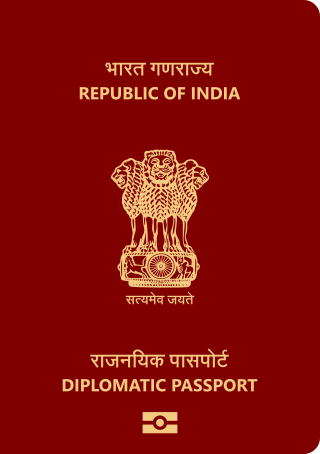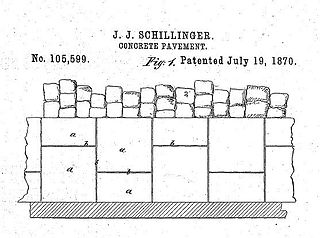
Diplomatic immunity is a principle of international law by which certain foreign government officials are recognized as having legal immunity from the jurisdiction of another country. It allows diplomats safe passage and freedom of travel in a host country and affords almost total protection from local lawsuits and prosecution.
Sovereign immunity, or crown immunity, is a legal doctrine whereby a sovereign or state cannot commit a legal wrong and is immune from civil suit or criminal prosecution, strictly speaking in modern texts in its own courts. State immunity is a similar, stronger doctrine, that applies to foreign courts.

The Eleventh Amendment is an amendment to the United States Constitution which was passed by Congress on March 4, 1794, and ratified by the states on February 7, 1795. The Eleventh Amendment restricts the ability of individuals to bring suit against states of which they are not citizens in federal court.

The Foreign Sovereign Immunities Act of 1976 (FSIA) is a United States law, codified at Title 28, §§ 1330, 1332, 1391(f), 1441(d), and 1602–1611 of the United States Code, that established criteria as to whether a foreign sovereign state is immune from the jurisdiction of the United States' federal or state courts. The Act also establishes specific procedures for service of process, attachment of property and execution of judgment in proceedings against a foreign state. The FSIA provides the exclusive basis and means to bring a civil suit against a foreign sovereign in the United States. It was signed into law by United States President Gerald Ford on October 21, 1976.

The Supreme Court of the United States handed down sixteen per curiam opinions during its 2005 term, which lasted from October 3, 2005, until October 1, 2006.
Saudi Arabia v. Nelson, 507 U.S. 349 (1993), is a United States Supreme Court case in which the Court considered the term "based upon a commercial activity" within the meaning of the first clause of 1605(a)(2) of the Foreign Sovereign Immunities Act of 1976.

Schillinger v. United States, 155 U.S. 163 (1894), is a decision of the United States Supreme Court, holding that a suit for patent infringement cannot be entertained against the United States, because patent infringement is a tort and the United States has not waived sovereign immunity for intentional torts.

In United States law, the federal government as well as state and tribal governments generally enjoy sovereign immunity, also known as governmental immunity, from lawsuits. Local governments in most jurisdictions enjoy immunity from some forms of suit, particularly in tort. The Foreign Sovereign Immunities Act provides foreign governments, including state-owned companies, with a related form of immunity—state immunity—that shields them from lawsuits except in relation to certain actions relating to commercial activity in the United States. The principle of sovereign immunity in US law was inherited from the English common law legal maxim rex non potest peccare, meaning "the king can do no wrong." In some situations, sovereign immunity may be waived by law.
Powerex Corp. v. Reliant Energy Services Inc., 551 U.S. 224 (2007), was a United States Supreme Court case about federal court jurisdiction and foreign sovereigns which involved BC Hydro's Powerex under the Foreign Sovereign Immunities Act of 1976 (FSIA).
United States v. Lee, 106 U.S. 196 (1882), is a 5-to-4 ruling by the United States Supreme Court which held that the Constitution's prohibition on lawsuits against the federal government did not extend to officers of the government themselves. The case involved the heir of Mary Anna Custis Lee, wife of Confederate States of America General Robert E. Lee, who sued to regain control of Arlington House and its grounds. Arlington had been seized by the United States government in 1861 and eventually converted into Arlington National Cemetery. The estate had been sold to pay outstanding taxes, but the lawsuit contested the tax sale as improper. A jury found in favor of the Lees. The Supreme Court, too, concluded that the tax sale was illegal. In stripping the federal officers of their sovereign immunity, the Supreme Court agreed that suit against them was proper.
Republic of Argentina v. NML Capital, Ltd., 573 U.S. 134 (2014), is a U.S. Supreme Court opinion regarding foreign sovereign immunity. After defaulting on its debt and losing a federal collection action, Argentina claimed that its foreign assets were immune from discovery. The Court found that no such immunity existed.
OBB Personenverkehr AG v. Sachs, 577 U.S. ___ (2015), is a decision by the Supreme Court of the United States, holding that the Foreign Sovereign Immunities Act barred a California resident from bringing suit against an Austrian railroad in federal district court. The case arose after a California resident suffered traumatic personal injuries while attempting to board a train in Innsbruck, Austria. She then filed a lawsuit against the railroad in the United States District Court for the Northern District of California in which she alleged the railroad was responsible for causing her injuries. Because the railroad was owned by the Austrian government, the railroad claimed that the lawsuit should be barred by the Foreign Sovereign Immunities Act, which provides immunity to foreign sovereigns in tort suits filed in the United States. In response, the plaintiff argued that her suit should be permitted under the Foreign Sovereign Immunity Act's commercial activity exception because she purchased her rail ticket in the United States.
Bank Markazi v. Peterson, 578 U.S. 212 (2016), was a United States Supreme Court case that found that a law which only applied to a specific case, identified by docket number, and eliminated all of the defenses one party had raised does not violate the separation of powers in the United States Constitution between the legislative (Congress) and judicial branches of government. The plaintiffs, in the case had initially obtained judgments against Iran for its role in supporting state-sponsored terrorism, particularly the 1983 Beirut barracks bombings and 1996 Khobar Towers bombing, and sought execution against a bank account in New York held, through European intermediaries, on behalf of Bank Markazi, the Central Bank of the Islamic Republic of Iran. The plaintiffs obtained court orders preventing the transfer of funds from the account in 2008 and initiated their lawsuit in 2010. Bank Markazi raised several defenses, including that the account was not an asset of the bank, but rather an asset of its European intermediary, under both New York state property law and §201(a) of the Terrorism Risk Insurance Act. In response to concerns that existing laws were insufficient for the account to be used to settle the judgments, Congress added an amendment to a 2012 bill, codified after enactment as 22 U.S.C. § 8772, that identified the pending lawsuit by docket number, applied only to the assets in the identified case, and effectively abrogated every legal basis available to Bank Markazi to prevent the plaintiffs from executing their claims against the account. Bank Markazi then argued that § 8772 was an unconstitutional breach of the separation of power between the legislative and judicial branches of government, because it effectively directed a particular result in a single case without changing the generally applicable law. The United States District Court for the Southern District of New York and, on appeal, the United States Court of Appeals for the Second Circuit both upheld the constitutionality of § 8772 and cleared the way for the plaintiffs to execute their judgments against the account, which held about $1.75 billion in cash.
Franchise Tax Board of California v. Hyatt, 587 U.S. 230 (2019), was a United States Supreme Court case that determined that unless they consent, states have sovereign immunity from private suits filed against them in the courts of another state. The 5–4 decision overturned precedent set in a 1979 Supreme Court case, Nevada v. Hall. This was the third time that the litigants had presented their case to the Court, as the Court had already ruled on the issue in 2003 and 2016.
Republic of Sudan v. Harrison, 587 U.S. ___ (2019), was a United States Supreme Court case from the October 2018 term. The Court held that civil service of a lawsuit against the government of Sudan was invalid because the civil complaints and summons had been sent to the Embassy of Sudan in Washington, D.C. rather than to the Sudanese Foreign Minister in Khartoum.
Jam v. International Finance Corp., 586 U.S. ___ (2019), was a United States Supreme Court case from the October 2018 term. The Supreme Court ruled that international organizations, such as the World Bank Group's financing arm, the International Finance Corporation, can be sued in US federal courts for conduct arising from their commercial activities. It specifically held that international organizations shared the same sovereign immunity as foreign governments. This was a reversal from existing jurisprudence, which held that international organizations had near-absolute immunity from lawsuits under the Foreign Sovereign Immunities Act and the International Organizations Immunities Act.
Opati v. Republic of Sudan, 590 U.S. 418 (2020), was a United States Supreme Court case involving the Foreign Sovereign Immunities Act with its 2008 amendments, whether plaintiffs in federal lawsuits against foreign countries may seek punitive damages for cause of actions prior to enactment of the amended law, with the specific case dealing with victims and their families from the 1998 United States embassy bombings. The Court ruled unanimously in May 2020 that punitive damages can be sought from foreign nations in such cases for preenactment conduct.

Cicippio-Puleo v. Islamic Republic of Iran was a 2004 case in the United States Court of Appeals for the District of Columbia Circuit related to the Foreign Sovereign Immunities Act (FSIA). The DC Circuit Court ruled that while 1996 amendments in FSIA made exceptions from sovereign immunity for states known for supporting state-sponsored terrorism, as listed by the State Department, foreign nations were still immune from private cause of action, preventing lawsuits from private individuals levied at the state based on such terrorism. As a result of this ruling, Congress significantly amended FSIA in 2008 to greatly expand the exceptions from sovereign immunity for state-sponsored terrorism and specifically allowing for causes of actions against foreign countries.
Federal Republic of Germany v. Philipp, 592 U.S. ___ (2021), was a United States Supreme Court case that dealt with the applicability of the Foreign Sovereign Immunities Act (FSIA) for heirs of victims of the Holocaust to sue Germany in the United States court systems for compensation for items that were taken by the Nazi Party during World War II. At issue in the case was whether claims fell within the FSIA's exception to sovereign immunity for “property taken in violation of international law,” 28 U.S.C. §1605(a)(3), given that the sovereign here was alleged to have engaged in a taking of its own nationals’ property; and whether courts can invoke the doctrine of international comity under the FSIA to abstain from exercising jurisdiction based on prudential considerations. In a unanimous opinion by Chief Justice Roberts, the Court held that FSIA does not allow these survivors to sue Germany in U.S. court, as the sale was an act of expropriation of property rather than an act of genocide, though other means of recovery are still potentially available.

Acree v. Republic of Iraq, 370 F.3d 41, was a case before the United States Court of Appeals for the District of Columbia. U.S. military personnel who had been tortured by Iraq during the 1991 Gulf War sued for damages, arguing that the Foreign Sovereign Immunities Act (FSIA) made state sponsors of terror liable. Iraq never contested the lawsuit, but the U.S. federal government intervened. The Court of Appeals ultimately decided against the plaintiffs, saying that the FSIA did not create new causes of action against foreign states. The U.S. Supreme Court declined to hear the plaintiffs' appeal.






